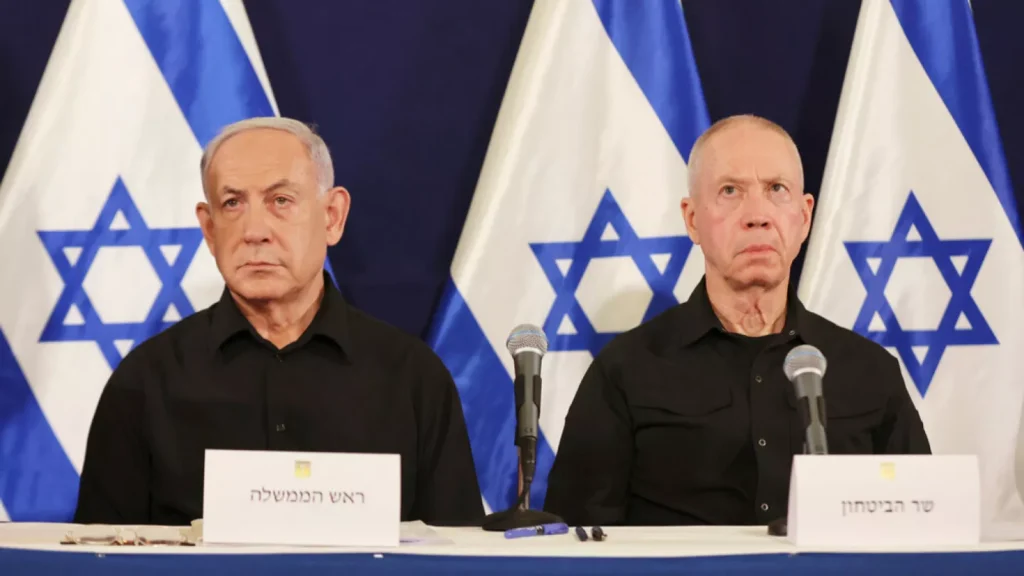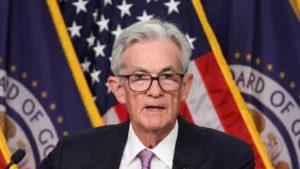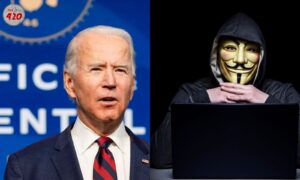
Netanyahu, Gallant ICC Warrants Spark Mixed Reactions
ICC Warrants for Netanyahu and Gallant: A Global Divide
On November 22, 2024, the International Criminal Court (ICC) issued arrest warrants for Israeli Prime Minister Benjamin Netanyahu and former Defense Minister Yoav Gallant. The move has generated mixed reactions globally, with political leaders and legal experts offering differing perspectives. While the warrants signal the ICC’s commitment to holding powerful figures accountable for alleged war crimes, the political fallout is far-reaching, particularly in Israel and the broader Middle East.
What Are the ICC Warrants for Netanyahu and Gallant?
The ICC’s warrants are related to accusations of war crimes during Israel’s military operations in Gaza. Specifically, Netanyahu and Gallant are accused of authorizing airstrikes that led to the deaths of thousands of Palestinian civilians, a charge Israel disputes, claiming the strikes targeted terrorist groups. The warrants mark an escalation in the ICC’s scrutiny of Israeli military actions, following earlier investigations into similar actions by both Israeli and Palestinian officials.
Israel, which does not recognize the ICC’s jurisdiction over its territory, has strongly rejected the warrants. Israeli officials argue that the court is politically motivated and biased against Israel, pointing to its ongoing investigation into the actions of both sides during the Israeli-Palestinian conflict.
International Reactions to the ICC Warrants for Netanyahu
The ICC’s move has sparked a wide range of responses from around the world. Some international leaders have expressed support for the court’s decision, framing it as a necessary step toward ensuring accountability in the Israeli-Palestinian conflict. Human rights organizations, such as Amnesty International, have lauded the decision, calling it a victory for justice.
“These warrants are an important message to world leaders that no one is above the law, and that accountability is essential in conflicts involving civilians,” said a spokesperson for Amnesty International. The organization has long advocated for greater scrutiny of Israel’s actions in Gaza, where airstrikes have resulted in significant civilian casualties.
Israeli and U.S. Reactions to the ICC Warrants
In stark contrast, Israeli officials have condemned the warrants as politically motivated. Netanyahu’s office issued a statement labeling the ICC’s actions as “a grave mistake.” The Israeli government has long argued that it is unjustly targeted by the international community, especially when it comes to its military operations in Gaza, which it justifies as self-defense against Hamas militants.
The United States, a close ally of Israel, has also expressed its disapproval of the ICC’s decision. U.S. Secretary of State Antony Blinken reaffirmed Washington’s stance that it does not recognize the court’s jurisdiction over Israel. Blinken called the warrants “unwarranted” and emphasized the need for Israel to have the ability to defend itself against terrorism.
Mixed Reactions in the Middle East
The ICC’s decision has also stirred up reactions within the Middle East. Palestinian officials have welcomed the arrest warrants, viewing them as a necessary step towards justice for the victims of Israeli airstrikes. Palestinian President Mahmoud Abbas praised the court for its “brave stance” and for holding Israeli officials accountable for alleged war crimes.
However, in other parts of the Middle East, reactions are more nuanced. Some Arab nations have expressed support for the ICC, while others remain cautious, balancing their relationships with both Israel and Palestine. The ongoing political and military tensions in the region make it difficult for many countries to take a definitive stance on the matter.
Legal Implications of the ICC Warrants for Netanyahu and Gallant
Legally, the ICC’s decision has significant implications. It is the first time that arrest warrants have been issued for Israeli officials on charges related to the Israeli-Palestinian conflict. The warrants underscore the international community’s increasing willingness to hold political leaders accountable for military actions, even if they occur in conflicts as complex as the one between Israel and Palestine.
However, the ICC’s jurisdiction remains a contentious issue. Israel, along with several other countries, does not recognize the court’s authority to prosecute nationals of non-signatory countries, such as itself. This leaves questions about the enforcement of the arrest warrants, as Netanyahu and Gallant are unlikely to face arrest anytime soon, especially as they continue to enjoy full support from Israel.
What Happens Next for Netanyahu and Gallant?
For Netanyahu and Gallant, the ICC warrants represent an ongoing legal and political challenge. While Israel has refused to cooperate with the ICC’s investigations in the past, the international community is expected to continue applying pressure on Israel to engage with the court.
At the same time, Netanyahu’s political future may be affected by the warrants. He is currently facing significant challenges in Israeli domestic politics, and the ICC warrants could become a central issue in his re-election campaign. Gallant, though no longer in office, remains a significant political figure in Israel, and the warrants could impact his ability to return to a prominent political role.
Conclusion: A Divisive Moment for Global Justice
The ICC’s warrants for Netanyahu and Gallant have illuminated the deep divisions in international opinions regarding justice in the Israeli-Palestinian conflict. While some view the warrants as a crucial step toward accountability, others see them as a politically motivated move that undermines Israel’s sovereignty. As the legal process unfolds, the political ramifications will continue to shape the discourse surrounding international law and its application in conflict zones.
For those interested in exploring this topic further, you can read more from Amnesty International, the ICC’s official website, and Reuters’ coverage.
FAQs
- What are the ICC warrants for Netanyahu and Gallant about?
The ICC issued warrants for Israeli officials Benjamin Netanyahu and Yoav Gallant for their involvement in military actions in Gaza, accused of committing war crimes. - Why did Israel reject the ICC warrants?
Israel rejects the ICC’s jurisdiction over its actions, arguing that the court is biased and politically motivated against Israel. - What did the U.S. say about the ICC warrants?
The U.S. condemned the ICC’s actions, stating it does not recognize the court’s jurisdiction over Israel and calling the warrants “unwarranted.” - How have Palestinian leaders reacted to the warrants?
Palestinian leaders have welcomed the warrants, seeing them as a step toward justice for Palestinian civilian casualties during Israeli airstrikes. - Can Netanyahu and Gallant be arrested under these warrants?
Although the warrants are issued, Israel’s refusal to cooperate with the ICC makes it unlikely that Netanyahu and Gallant will face arrest anytime soon. - Why is the ICC important?
The ICC is a global institution that seeks to prosecute individuals for serious international crimes, including war crimes and crimes against humanity. - How does this impact Israel’s international relations?
The warrants may strain Israel’s relations with countries that support the ICC, though Israel remains backed by key allies like the U.S. - What’s the next step for the ICC in this case?
The ICC will continue its legal proceedings, but enforcement of the warrants is uncertain due to Israel’s non-cooperation. - How has the Middle East reacted to the warrants?
Reactions vary, with some Arab nations supporting the ICC’s decision, while others remain cautious or neutral. - Could this affect Netanyahu’s political future?
Yes, the warrants could influence Netanyahu’s re-election campaign and his political standing within Israel.
Image credit – Abir Sultan/ABIR SULTAN



2 thoughts on “Netanyahu, Gallant ICC Warrants Spark Mixed Reactions”
Comments are closed.